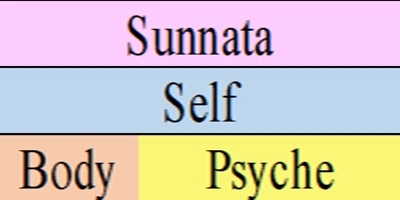Conative?
I have just come across a word I like - conative. Apparently it is not a word that is in use much but it is part of a model of thinking:-
"Psychology has traditionally identified and studied three components of mind: cognition, affect, and conation (Huitt, 1996; Tallon, 1997). Cognition refers to the process of coming to know and understand; the process of encoding, storing, processing, and retrieving information. It is generally associated with the question of "what" (e.g., what happened, what is going on now, what is the meaning of that information.)
"Affect refers to the emotional interpretation of perceptions, information, or knowledge. It is generally associated with one's attachment (positive or negative) to people, objects, ideas, etc. and asks the question "How do I feel about this knowledge or information?"
"Conation refers to the connection of knowledge and affect to behavior and is associated with the issue of "why." It is the personal, intentional, planful, deliberate, goal-oriented, or striving component of motivation, the proactive (as opposed to reactive or habitual) aspect of behavior (Baumeister, Bratslavsky, Muraven & Tice, 1998; Emmons, 1986). It is closely associated with the concept of volition, defined as the use of will, or the freedom to make choices about what to do (Kane, 1985; Mischel, 1996). It is absolutely critical if an individual is to successfully engage in self-direction and self-regulation."
Some of the conative issues one faces daily are:

What is my life's purpose and are my actions congruent with that purpose?

What are my aspirations, intentions, and goals?

On what ideas, objects, events, etc. should I focus my attention?

What am I going to do, what actions am I going to take, what investments am I going to make?

How well am I accomplishing what I set out to do? [
Source]
Now conative knowledge is also described as experiential knowledge and it was this that attracted me to the word; I was hoping to contrast cognitive with conative. However the motivational stuff doesn't sound too experiential to me.
Knowledge is not all "equal". When you have experienced something that knowledge is unshakeable. When ignorant
sceptics want to tell me acupuncture doesn't work, then I know they are not scientists but promoting an agenda. When science fails to apply itself to consider chi as real, given that so many people accept its existence it is a failure of science. Now that I have found that my plant-based diet has developed increasing yin excess that affected my sleep, metabolism, lungs and heart, I have strong indicators that the existence of yin-yang is real (I accept the possibility that starting to eat meat has done something else to my body other than making my food more yang but I have not learnt of such an interpretation). When meditation as empirical knowledge can be repeated, then it is the failure of science to apply itself to recognising this truth. Experiential knowledge carries a conviction with it that goes beyond misplaced authority.
Science applied through academia is mostly cognitive. Academic justification comes from a reference source, and such sources have "respect" - and therefore weight - that allows cognitive development through analysis to develop new conclusions as knowledge. But what is the axiom that this knowledge has developed from? It has developed from a reference but that reference could be greatly distanced from the initial experiential knowledge that gave it justification. It is worth considering this distance a little more. An original thinker writes a book, and for some reason academia accepts the original thinking that is in the book. That thinking might merit the original thinker being given a professorship - if her/his face fits. Other academic without the experience of that original thinker start to write about what is in the book - NOT about the experience that was the original thinking. If these thoughts become widely accepted more and more people wrote about what is written, often such writings don't even source the original thinker especially of that thinker is not contemporary. Writing about the writings might give someone a professorship and her/his text might become the substance of a lecture course in which case a student is writing about a book that is about a book that is about a book that might not even reference the original thinking. As such cognitive knowledge does not have the conviction of the experiential because it is so distanced, it was this contrast that I wanted to make between cognitive and conative but am now unsure of the scope of the word "conative".
Experiential knowledge is not for me based on any volitional or motivational or better "internal" reaction prior to experiencing the knowledge. Experienced knowledge is real, it is open to misinterpretation but it cannot be refuted as a real experience. It is axiomatic, science only interprets. For scientific principle, cognitive "so-called" knowledge, to contradict experiential knowledge is principle misapplied. An experience cannot be contradicted, that knowledge inviolable. When a Christian has a vision - a religious experience, the facts of the description of that vision is real, the interpretation of that vision as coming from God or Jesus is open to doubt and enquiry, the vision itself is not. If a child remembers a past life the description of that memory is real, it has to be proven to be fake or not but the memory cannot be dismissed. For science to dismiss reincarnation and therefore to dismiss the memory is not valid science, because science has failed to accept what is real - the description that the child gave. This example is not given because I believe in reincarnation - I don't believe in anything, it is given because there is an important difference in types of knowledge. Conative knowledge based on experience cannot be refuted, only the interpretation or cognitive conclusions from it can be.
It is the approach of psychology, this "cognitive-affect-conative" approach that is flawed. It is evaluating knowledge by starting in the mind, to me this is a flaw. What is real is the experience, what is not real is any interpretation of that experience. However well-intentioned that interpretation is limiting. Consider an event such as a road accident. Accounts of that accident vary - whether by intention or not - because the knowledge that is accepted by the mind is not as full as the experience itself, the event, the accident. What is understood - recorded or accepted - in the mind is limited by the processes of mind.
Here is where mindfulness makes a hit. Consider the description of mindfulness as judgement-free awareness. If there is mindfulness then what is understood from the accident would be as close as possible to the actual event because it is simply awareness without any application of mental processes (judgement-free). As far I understand the language mindfulness is not cognitive but conative. Because it is based on the experience mindfulness has greater validity.
This brings me to something that is very important to understand at the moment. The 1% has recognised that the internet can be used to cause confusion, and with the ensuing confusion they are able to exploit the lack of resistance. Climate change was awareness, it was based on experience and backed up by scientific method. The Koch Brothers and their fakery financed climate denial, and because they were able to finance it to such an extent then the quantity of that financed denial impacted on the perceived knowledge. This is the confusion - financed confusion - to benefit the 1% who then continue to exploit the environment. In this case knowledge is being ignored by the 1% in order to create profit, and by promoting cognitive knowledge - in this case the cognitive knowledge is creating confusion - they are able to avoid paying for the consequences of their profit-making; they are able to avoid any concerns for the environment.
Fake News is not based on experience but cognitive approaches. The 1% pay for the repetition, and because of our education we do not discriminate between cognitive knowledge and experiential or conative knowledge. We do not have the convictions of our experience because we are conditioned to accept the cognitive and conative as equivalent. We cannot allow our experience to be undermined because we are not encouraged to accept a convicted approach. Conative knowledge has conviction because the experience is real. Educators need to recognise this especially in a world of fake news.
This brings me to insight, there is no greater conviction than insight. The only thing that should change a genuine insight is a new insight that demotes the older one to being that of clinging (to the old insight). Because many in academia do not experience insights they do not discuss its validity. Instead of insight being evaluated as conative or experiential knowledge it is passed off as simply another thought or idea that can come or go. But insight is not this it comes from the state of mind which enables pure truth to be accepted, this is why insight is so often associated with meditation.
Knowledge itself is not inviolable but the type of knowledge. Knowledge that comes from experience has truth but is open to misinterpretation. Knowledge that comes from insight is inviolable because the process of insight is a process that enables the mind to connect to truth. Insight brings with it a conviction that can thwart all cognitive attacks - necessary in this world where the cognitive approaches of the khandhas attempts to undermine the truth which is insight. It might be more appropriate to consider the word conative as that which is beyond the khandhas but that might be my simply appropriating definition. Truth is beyond the khandhas:-

And the khandhas contain the cognitive and affect of the psychological model. Khandhas - rupa - body, vedana - feelings, sanna - perceptions, sankhara - mental processes or proliferations, vinnana - consciousness that can attach to the khandhas or move beyond and allow sunnata to connect to the mind. I am suggesting that the conative might best be considered as a description of the consciousness that moves beyond giving truth to sunnata.
I like where this has gone, conative as being that which goes beyond the khandhas. Not sure how much this is the intention of the word.


